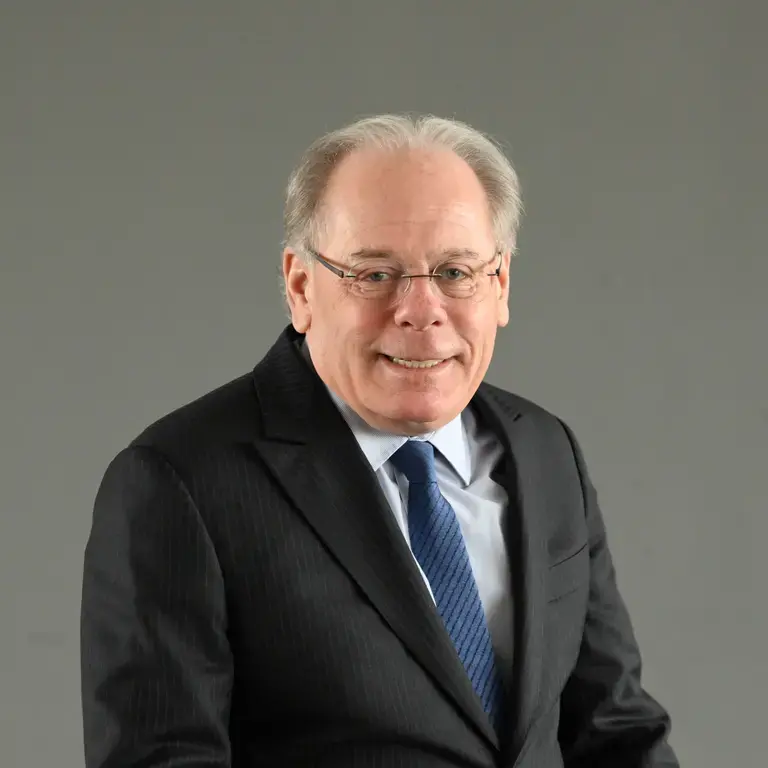By Steven Cohen, Ph.D., Director of the M.S. in Sustainability Management program, School of Professional Studies
New York City is largely paved over and uses a lot of asphalt. There is a company in Blissville, Queens, that recycles asphalt and reduces the carbon footprint of repaving New York City’s roads. The problem is that in the process of manufacturing this material, they pollute the air that people living in the neighborhood use to breathe. Just as manufacturing solar cells, windmills, and batteries pollutes, recycling facilities also pollute. This is, in some sense, inevitable because most of what humans do pollutes the planet or damages—and sometimes destroys—non-human species. That is inevitable and unavoidable. Environmental sustainability can never make the planet pristine, nor should that be our goal. Our goal should be to understand and measure negative environmental impacts and reduce them wherever we can. The Green Asphalt Company does important work but needs to focus its attention on reducing its air impacts and getting along better with its neighbors.
This is not a trivial issue, and it has become a hot political issue in Queens. According to Shane O’Brien of the LIC Post in Long Island City:
“A group of Queens and Brooklyn lawmakers is calling on the New York State Department of Environmental Conservation (DEC) to temporarily suspend operations at Green Asphalt, an asphalt plant in Blissville, until the company addresses alleged air pollution affecting nearby neighborhoods. Green Asphalt, located at 37-98 Railroad Ave., uses recycled asphalt to produce mixes marketed as more cost-effective and sustainable than traditional asphalt. The company has operated out of the industrial area near Newtown Creek since 2011. However, residents in both Blissville and Greenpoint have long complained about persistent fumes and odors from the facility, which they say have created serious quality-of-life issues for more than a decade. The DEC cited Green Asphalt with a nuisance violation in January 2024, noting that emissions from the plant “unreasonably interfered with the comfortable enjoyment of life or property.” Since the violation was issued, residents say conditions have worsened, with increased complaints of noxious odors and air quality issues on both sides of the Newtown Creek…Green Asphalt has stated that its use of recycled materials supports the city’s climate goals and provides cost savings for contractors working on infrastructure projects across the five boroughs.”
One proposed solution to this problem is a taller smokestack to direct the factory’s fumes away from Blissville. Of course, the taller smokestack solves little. Half a century ago, environmental engineers often said that “the solution to pollution is dilution,” but we’ve learned the limits to that strategy. The idea is that a lower concentration of toxics tends to be less harmful. That is true, but as scientists continue to research toxicity, they learn that acceptable toxicity levels tend to become lower the more we understand their biochemistry. In any case, even this flawed strategy has not yet been implemented by the Green Asphalt Company.
O’Brien’s piece in the LIC Post details a variety of community complaints about the factory’s air impacts. A well-managed and sustainably managed company would recognize the importance of accommodating rather than ignoring community complaints. Clearly, the cost of cleaning the plant’s emissions, possibly including an expensive air filtration system, will raise the price of the asphalt. In recognition of this, the city might consider tax subsidies, such as lowering property taxes on the factory or requiring city vendors to purchase recycled asphalt for repaving projects. Green Asphalt is not taking the issue of community impact as seriously as it should in New York City. It’s true that petrochemical companies in Louisiana’s “Cancer Alley” have succeeded in overcoming community complaints about toxic effluents and emissions from their plants. That may be because Louisiana’s government is a wholly owned subsidiary of the fossil fuel industry. New York’s is not. Here, the city’s government is dominated by the real estate and finance industries. No locality can afford to ignore economic power, but New York City’s political culture does not allow it to ignore community complaints. This was a lesson learned by Amazon when the same Queens community successfully opposed the $3 billion subsidy then-Mayor DeBlasio and former Governor Cuomo were willing to give Amazon if they located “HQ2” in New York City. Amazon’s HQ2 landed in Crystal City, Virginia, but in the end, the company still located thousands of workers in prime Manhattan real estate. They came for our talented people, and we didn’t need to pay them for the honor.
New York City is a crowded and closely monitored space. Our quality of life requires people to respect their neighbors. The city’s politics is built for responsiveness. New Yorkers are not known for keeping quiet about their complaints, and to free up emergency lines for nonemergency complaints, New York initiated the 311-complaint line in 2003. Last year, New Yorkers made 3.4 million 311 calls. The complaints about Green Asphalt are becoming more and more intense. As Joe Hong reported recently in the Gothamist:
“After more than a decade of complaints from residents against the company sent to elected officials and community board members, the New York State Department of Environmental Conservation delivered a letter to Green Asphalt last week requiring the company to double the height of its smokestack to 90 feet by December. The agency cited “numerous community complaints” about the odor coming from the facility and residents’ concerns about the potential health risks. But local residents, lawmakers and environmental advocates aren’t fully satisfied. They want the state to shut down the company’s operations until the smokestack is raised. They also want air filters installed in the smokestack, and they want clarity on what the company is putting not just into the air, but also into Newtown Creek, located alongside the factory.”
Clearly, Green Asphalt has operated under the mistaken assumption that they could wait out the community’s complaints and defer engaging with and responding to people living near the plant. No one contests the value of recycling asphalt. In a city that is constantly repaving its roads, such a factory is well worth retaining. But the company needs to invest resources in community relations and will need to invest in additional pollution control measures. This will raise the cost of the product that they sell. A close engagement with community leaders, local elected officials, the city and state environmental agencies, and the mayor’s office is needed to help the company reduce pollution and make money as well. There is a win-win deal here, and a competent city government would find a way to secure one.
Many companies are not skilled in this type of political and community engagement and consider it an illegitimate intrusion on their right to operate a business. It costs companies time and money that they’d rather devote to more “productive” uses. It’s typically outside their areas of competence and comfort. Given the anti-regulatory environment in the federal government, they may well think that conflict is a better strategy than cooperation. My view is that positive community relations is an important corporate asset and is often a reflection of competent and sophisticated management. It is in New York City’s interest to repave their roads with recycled asphalt. It is also in New York City’s interest to buy local and to protect the quality of life of its residents. It’s in Green Asphalt’s interest to stay in business and make money.
We are gradually transitioning from a linear economy based on the extraction of resources from the planet and dumping our garbage into a hole in the ground to a circular economy based on renewable resources and mining our garbage for resources to recycle. This transition generates issues of fairness and feasibility. There will be many bumps in the road. We need to take them seriously. A community complaining about pollution should never be ignored and should be accommodated.
Artificial intelligence and robotics will change the nature of labor and resource use. I know people fear AI, and I suppose there is reason to be concerned about AI governing humans. We are already being manipulated by social media and disinformation, so regulation of social media and AI are already needed. As technology becomes more sophisticated, our governance of that technology must keep pace. One positive impact of AI and automation is that it will enable the linear economy to give way to a circular economy. The human species will continue to find work and meaning, but the type of employment needed will change, just as it did when farming replaced hunting and gathering and when the brain-based service economy replaced manufacturing. Each of these transitions created new jobs along with winners and losers. Transitions are never cost-free. The development of the circular economy will require operational struggles such as the one now taking place in Queens. They can be resolved if we have the will and courage to engage with each other. We need the Green Asphalt Company, but our government must work with the company and community to enable both parties to thrive.
Views and opinions expressed here are those of the authors, and do not necessarily reflect the official position of Columbia School of Professional Studies or Columbia University.
About the Program
The Columbia University M.S. in Sustainability Management program offered by the School of Professional Studies in partnership with the Climate School provides students cutting-edge policy and management tools they can use to help public and private organizations and governments address environmental impacts and risks, pollution control, and remediation to achieve sustainability. The program is customized for working professionals and is offered as both a full- and part-time course of study.



